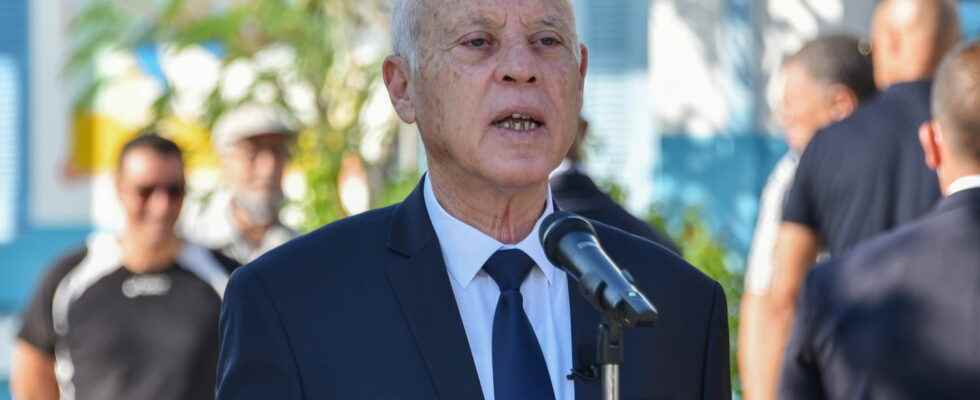TUNISIA REFERENDUM. Only 27.5% of Tunisians voted in the referendum on the adoption of a new Constitution on July 25, 2022. According to the polls, the “yes” should prevail and strengthen the powers of President Kaïs Saïed.
[Mis à jour mardi 26 juillet à 12h07] In the aftermath of the referendum on the adoption of a new Constitution, Tunisians are divided between two states of mind: those who see constitutional reform as a way out of the political crisis and those who fear that it will lead to authoritarian excesses. They are barely 27.54%, or 2.5 million out of the 9.3 million Tunisian voters, to have participated in the referendum vote desired by the current president, Kaïs Saïed, on Monday July 25, 2022. These are they who celebrated last night and again a little this morning the vast majority of “yes” announced at the ballot box by all the polls. If passed, the referendum will strengthen the powers and prerogatives of the Head of State.
The majority “yes” but relative to the referendum in Tunisia
Hardly had the vote been closed than the victory of the “yes” vote and the adoption of the new Constitution were announced and celebrated in the streets of Tunis last night. Predictions confirmed by the “exit polls” polls including that of the Sigma Conseil institute which provides 90% of votes in favor of the new Constitution. An overwhelming majority but which remains relative given the turnout. But whatever the number of votes cast, only the result of the referendum counts. Tunisia and it seems final.
The participation rate, barely above a quarter of Tunisian voters, nevertheless satisfied the president of the Independent High Authority for Elections (Isie), Farouk Bouasker. Despite the official figures of abstention, the representative of the authority rejoiced in front of the media on July 25 reports the Figaro : “The voters were at the rendezvous with History and headed in very respectable numbers to the polling stations”. This significant abstention is partly due to the call for a boycott and non-participation in the ballot issued by the opposition and followed by some young Tunisian voters. The opposition forces consider the referendum “illegal” and designed without consultation.
What is the result of the Tunisian referendum?
The result of the referendum organized on July 25 in Tunisia is not yet known and should be officially communicated during the month of August. However, the polls are already categorical and their forecasts leave no room for doubt: the referendum should be voted on and the new Constitution adopted. While the counting is in progress, the first partial results are expected this Tuesday, July 26, the day after the vote according to RFI and may confirm or contradict the trend.
Why are the result of the referendum and the new Constitution worrying?
The Tunisian referendum is an event because the outcome of the vote depends on the constitutional reform. The reform proposes the adoption of a new Constitution which, if it enters into force, will considerably strengthen the powers of the Tunisian President, Kaïs Saïed. “In this new Constitution, [le président] has all the executive powers, the legislative powers, the judicial powers and the religious powers”, remarked the member of the Tunisian workers’ party Hamma Hamami, to France info. A scenario dreaded by more than one who already sees authoritarian excesses taking shape.
The changes that would be made to the Constitution by a “yes” in the referendum would be significant: the president could in particular dismiss the head of government – who ensures the executive power with him – without having to justify himself, nor need to obtain the agreement or the confidence of Parliament. Thanks to this constitutional reform, the Head of State could also personally submit bills to Parliament and set their priorities. A way to make the role of head of government very incidental and to make the president the essential figure – even untouchable – of the regime, with a very significant concentration of power. The Parliament – whose prerogatives would be reduced – would also be put in competition in the drafting and voting of laws by another body, a chamber made up of representatives of the regions.
The text proposed to the Tunisians is highly criticized by political observers attached to the fact that Tunisian democracy, fragile, can function as calmly as possible, with solid checks and balances. Sadok Belaïd, the jurist who was responsible for drawing up the new Constitution with the Head of State, said himself that he was in deep disagreement with the version of the text submitted to the referendum: he notably considered publicly that a yes to the referendum validating these constitutional changes could “open the way to a dictatorial regime”.
